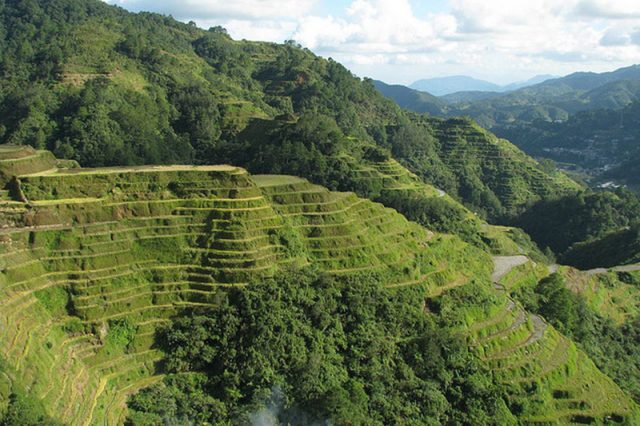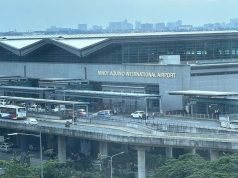An erroneous poster promoting the world-renowned Banaue Rice Terraces at the Ninoy Aquino International Airport (NAIA) Terminal 4 was removed after an archaeologist pointed out a location mistake.
Archaeologist and professor Stephen Acabado on Sunday afternoon shared pictures of a poster he spotted at the NAIA Terminal 4 promoting the rice terraces and claiming it was in Benguet.
The poster was a material by the Department of Tourism for its “Love the Philippines” campaign.
ALSO READ: Issues hounding DOT’s ‘Love the Philippines’ tourism video earn global attention | Yay or nay?: Social media weigh in on ‘Love the Philippines’ new tourism campaign
“The Banaue Rice Terraces are in… BENGUET! SMH (Shaking My Head) DOT! Seen at NAIA Terminal 4! Addendum: the Ifugao Chief is not happy,” Acabado wrote on July 14.
By Sunday evening, he reported that the poster had already been “taken down” as of 7:39 p.m.
“The Banaue Rice Terraces have been returned to Ifugao,” the archaeologist joked on his post.
Acabado’s post has earned viral status with 2,300 reactions and 1,800 shares so far.
It also reached the X (formerly Twitter) platform, where a Baguio resident called out the DOT as well. User @MiaMagdalena wrote:
“Dear DOT:
Banaue is in Ifugao.
Love,
The Philippines”
Dear DOT:
Banaue is in Ifugao.
Love,
The PhilippinesPhoto by Stephen Acabado/FB pic.twitter.com/UEDeheZUuA
— Miss Maggie (@MiaMagdalena) July 14, 2024
The DOT has yet to release a statement about the error, although the poster was removed on the same day Acabado spotted the mistake.
The Banaue Rice Terraces were carved in the mountains located in the municipality of Banaue in the Ifugao province.
Benguet is a different province, unlike what the DOT poster has claimed before.
Both provinces, Benguet and Ifugao, are under the Cordillera Administrative Region.
The Banaue Rice Terraces is a National Cultural Treasure of the Philippines, as declared through Presidential Decree 262 (series of 1973).
It is considered as an eighth Natural Wonder of the World by Filipinos.
The rice terraces were initially constructed as a practical solution to the problem of growing rice on land that falls in front of people in vertigo-inducing angles.










